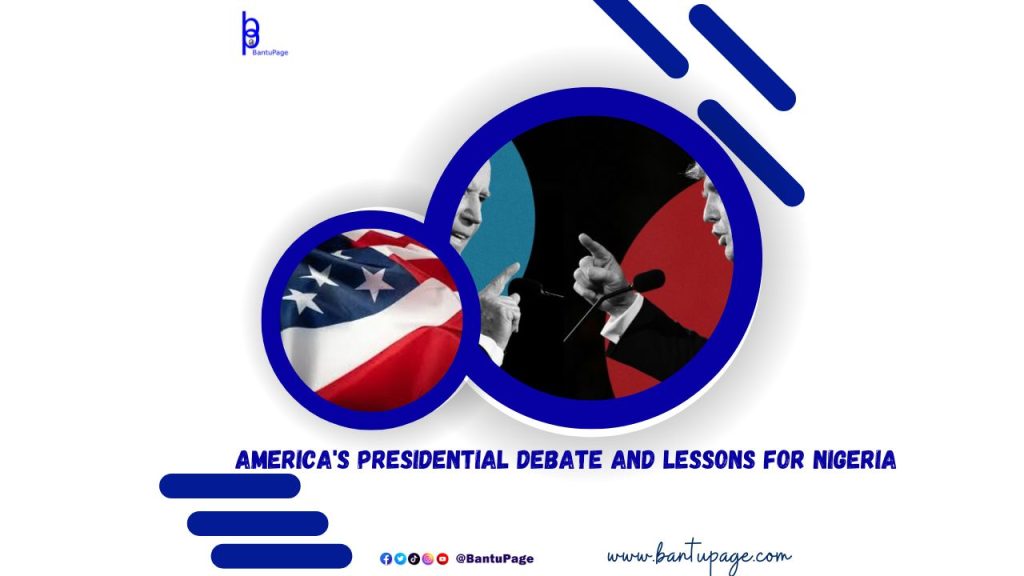
Political analysts everywhere are talking about the key points of last night’s debate between U.S. President Joe Biden and his old foe and ex-President Donald Trump. Last night’s debate was hosted by CNN; it’s the first in a series of debates that will take place before the November elections in America.
America’s democracy is a healthy one; even though it’s far from perfect, it sets a template for weaker democracies like Nigeria to follow.
And why did I say Nigeria? Well, first, because I am Nigerian, and second, because Nigerian presidents have had a poor record of turning up for debates during elections. If Joe Biden were Nigerian, there is a slim possibility that he would have been absent from last night’s debate, and we would have seen his media aides and supporters come on social media to defend that unpatriotic attitude by cooking up excuses for him. And the funniest part of it is that these media aides and delusional supporters at some point start to believe their own lies. There’s a Nigerian term for it, “Delulu”, where people get so carried away by their imagined reality that they actually start to believe it.
During the 2019 elections, incumbent president Buhari evaded multiple attempts to bring him to debate his plans for Nigeria. He was to face old foe and political rival Atiku Abubakar of the PDP, who turned up for the debate only to meet Buhari’s absence. Disappointed by Buhari’s refusal to show up, Atiku stormed out of the venue. There were other presidential candidates at the venue who were willing and eager to confront Atiku on policies, plans, and strategies to rescue Nigeria from the APC’s grip, but Atiku did find them worthy enough to debate, a rather disappointing display of pride and arrogance from people who were vying to be Nigeria’s chief servants.
Fast Forward to 2023, when Bola Tinubu decided that it was his turn to run for office in his famous Abeokuta declaration, where the catchy Yoruba phrase Emi lokan was born.
Like Buhari, Tinubu evaded debates; in fact, he took it a step further. Buhari, during his time, granted audience to the local media.
Tinubu didn’t think it was necessary; he evaded interviews and press briefings at home. The few times Nigerians heard him grant interviews, it was to foreign media houses, one to the BBC, where he promised to hit the ground running, and the other at Chatham House in London, where he delegated questions directed at him to his lieutenants like El Rufai and Fashola to answer for him. They moved like a pack, and they reminded me of group assignments in secondary school, where the form teacher would insist that group members cooperate to find answers.
Many might argue that Nigeria’s democracy is quite young and should not be compared to countries like America and Britain that have hit political menopause, but it is important to note that on Nigeria’s return to democracy in 1999, Olusegun Obasanjo did not dodge debates, nor was he afraid to face local media, nor did MKO Abiola, the alleged winner of the June 12, 1993 elections and the self-acclaimed leader of Nigeria’s short-lived 3rd Republic.
Even if we decide to take it back a bit to the second republic, Shagari, Awolowo, and Azikiwe, who were frontrunners in the 1979 elections, did not dodge debates; in fact, debates were seen as a way to sell your ideas to the voters. We don’t know what changed or when our presidential hopefuls decided that debates were now beneath them, but it’s a sad development that we would not like to see in the coming elections.
By Nnaemeka Odenigbo





